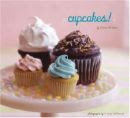Well Rouge Wavers, it's the day we've all been waiting for. The top 3 finalists in the Whiskey, Tango, Foxtrot Competition. The Wave-inatrix received over two dozen submissions so the judging was tough. I want to thank everybody who participated! Now pay careful attention because here's how we're going to vote: See over to your right? On the sidebar? Click there for the title of the half-page scene you most enjoyed and which most embodied the creative joie d' vivre that the Wave-inatrix holds so very dear. And so, without further adieu, read on, dear Wavers:
FINALIST NUMBER ONE:
SOUPER TROOPER
by
Bernadette Rivero
INT. CAN OF SOUP - DAY
A commercial film crew preps for a shoot inside a three-story tall CAN OF SOUP. Nearby, a heavy-set CLIENT paces nervously.
Not-so-gently fading actress BLANCHE DESMOND - 60’s, whiskeyvoiced - perches on a diving board high above a pool of tomato bisque. Blanche brushes off nervous makeup assistant HONEY as the girl gamely tries to layer pancake makeup onto her weathered face.
BLANCHE
Get that spackle off of me. I
couldn’t care less how I look on
camera -- just like I couldn’t give
a shit about this soup if I
squeezed all night.
Honey GASPS, takes a step back and trips off of the diving board. One leg inadvertently HOOKS BLANCHE’S FOOT, pulling the old woman into the opaque bisque with her. A messy liquid tango results as the two women claw at each other. The crew is too stunned to move. Eventually, two bodies float to the surface of the soup -- both of them face-down.
THE CLIENT
(nervously)
Foxtrot, did you get that on film?
FOXTROT, the director, shakes his head “no.”
The client mops his forehead, breathing a SIGH OF RELIEF.
FINALIST NUMBER TWO:
JUNIPER
By
Jenny Thomas
INT. MANSION - BEDROOM - DAY
Yellowed newspaper clippings cover every wall, touting the career of JUNIPER LEWIS. From child star to superstar.
A foxtrot crackles from a record player.
Juniper (70s) sprawls in bed. An oxygen mask secured against her mouth. She takes labored breaths. She pulls the mask aside, applies a deep red lipstick over her thin lips.
The song switches to a tango. A YOUNG MAID wanders in with a cup of tea. She draws open the curtains. Flips on the television.
Juniper reaches under her pillow, pulls out a small whiskey bottle, adds a dash to her tea.
ON TELEVISION
Black and white footage. YOUNG JUNIPER (10) sits at a table with a bowl of soup.
YOUNG JUNIPER
Have you had your soup today?
Campbell’s of course!
Young Juniper backtracks. Skips into frame. Sits at a table. Slurps her soup. Over and over and over again.
FINALIST NUMBER THREE:
ALPHABETTIOS
by
The Moviequill
INT. DRESSING ROOM - DAY
Glossy 8X10s taped to a makeup mirror: publicity stills, vintage black and white movie scenes. The happy and vivacious STARLET in the photos looks to be in her 20s.
A wrinkled face stares back from the makeup mirror. SANDI CARUTHERS, 70, the same actress from the photos now in her waning years. No smile. The twinkle in her eyes long gone. Sandi takes a healthy sip from a whiskey glass, puts it down and picks up a makeup pad. She applies white powder to her face, totally whitening it out.
Vintage latin jazz MUSIC suddenly drifts in from another room. Sandi smiles as she finishes a layer of makeup. She stands and turns away from the mirror.
Sandi is dressed in an oversized fat suit made to look like the letter W. She begins a tango to the beat of the music.
A KNOCK on the door and a PAGE enters carrying a clipboard.
PAGE
Ten minutes, Sandi.
SANDI
It’s Miss Caruthers, sonny.
PAGE
Sorry. Is that a foxtrot? I think
I saw my Grandma do that at the
home once.
Sandi stops and glares at the Page. Wobbles.
SANDI
You wouldn’t know a foxtrot if it
bit you on your diaper rash...
(begins to foxtrot)
This is a foxtrot!
The Page rolls his eyes, shuffles his feet.
PAGE
I thought we were going to go over
your lines?
SANDI
I’m an Alphabettio in a goddamn can
of soup. I don’t have lines.
If you enjoyed this post, follow me on Twitter or subscribe via RSS.
























